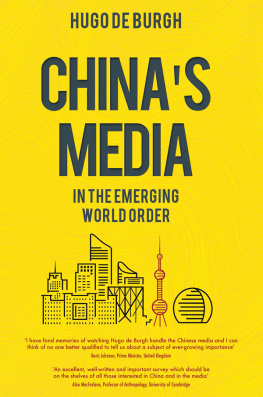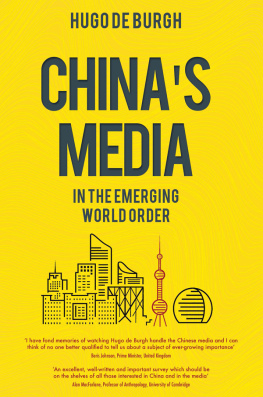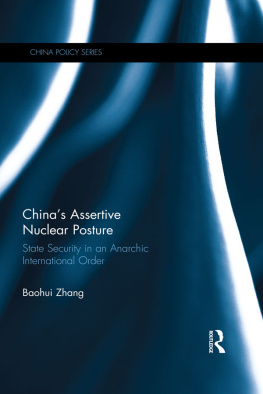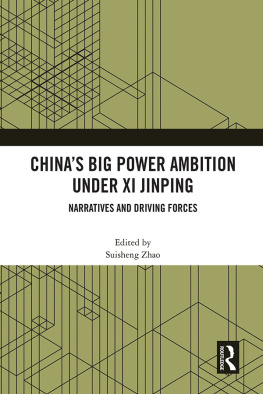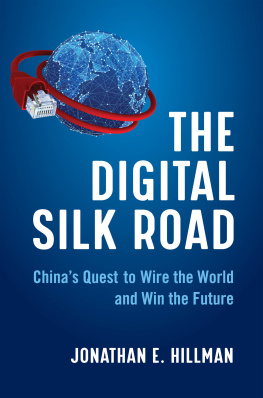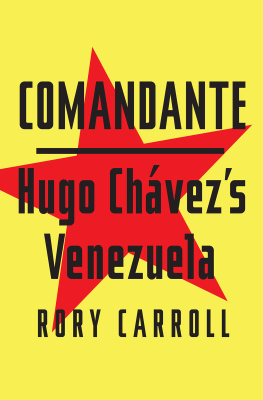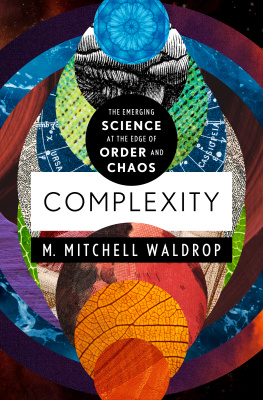Hugo De Burgh - Chinas Media in the Emerging World Order
Here you can read online Hugo De Burgh - Chinas Media in the Emerging World Order full text of the book (entire story) in english for free. Download pdf and epub, get meaning, cover and reviews about this ebook. year: 2018, publisher: University of Buckingham Press, genre: Politics. Description of the work, (preface) as well as reviews are available. Best literature library LitArk.com created for fans of good reading and offers a wide selection of genres:
Romance novel
Science fiction
Adventure
Detective
Science
History
Home and family
Prose
Art
Politics
Computer
Non-fiction
Religion
Business
Children
Humor
Choose a favorite category and find really read worthwhile books. Enjoy immersion in the world of imagination, feel the emotions of the characters or learn something new for yourself, make an fascinating discovery.
- Book:Chinas Media in the Emerging World Order
- Author:
- Publisher:University of Buckingham Press
- Genre:
- Year:2018
- Rating:5 / 5
- Favourites:Add to favourites
- Your mark:
- 100
- 1
- 2
- 3
- 4
- 5
Chinas Media in the Emerging World Order: summary, description and annotation
We offer to read an annotation, description, summary or preface (depends on what the author of the book "Chinas Media in the Emerging World Order" wrote himself). If you haven't found the necessary information about the book — write in the comments, we will try to find it.
Chinas Media in the Emerging World Order — read online for free the complete book (whole text) full work
Below is the text of the book, divided by pages. System saving the place of the last page read, allows you to conveniently read the book "Chinas Media in the Emerging World Order" online for free, without having to search again every time where you left off. Put a bookmark, and you can go to the page where you finished reading at any time.
Font size:
Interval:
Bookmark:

HUGO DE BURGH
IN THE EMERGING WORLD ORDER

University of Buckingham Press,
107-111 Fleet Street, London, EC4A 2AB
Contents Hugo de Burgh 2020
The right of the above author to be identified as the author of this work has been asserted in accordance with the Copyright, Designs and Patents Act 1988. British Library Cataloguing in Publication Data available.
Print ISBN 9781789550931
Ebook ISBN 9781789550948
Set in Times. Printing managed by Jellyfish Solutions Ltd
Publishers Note
Every possible effort has been made to ensure that the information contained in this book is accurate at the time of going to press, and the publisher and author cannot accept responsibility for any errors or omissions, however caused. No responsibility for loss or damage occasioned to any person acting, or refraining from action, as a result of the material in this publication can be accepted by the editor, the publisher or any of the authors.
All rights reserved. No part of this publication may be reproduced, stored in or introduced into a retrieval system, or transmitted, in any form, or by any means electronic, mechanical, photocopying, recording or otherwise, without the prior permission of the publisher. Any person who commits any unauthorised act in relation to this publication may be liable to criminal prosecution and civil claims for damages.
Nations do not escape from their past merely by making a revolution
George Orwell, The English Revolution
When the publisher told me that interest in Chinas Media justified a second edition, I jumped at the chance of tidying up the text. In the rush to publish, I had failed to systematize the Chinese font. This is now corrected, as are a number of minor errors.
Why did I bother to interpolate Chinese at all? Most other English language books on China do not.
There are two reasons. One is that there is a plethora of media and institutional names that are rendered in English with titles that are not really translations. So, to avoid confusion, it is necessary to give the original name. Second, new generations of my target readerships students of international relations, politics, media and area studies read Chinese. They want the actual name.
I have tried not to use Chinese expressions unless there really is no equivalent, as for example, xitong. Place names and personal names are rendered in Pinyin unless there are historic English versions, e.g. Sun Yatsen, Peking, Chiang Kaishek.
Aside from changes to the orthography, I have made just a very few minor updates. Since changes in the media are so fast and furious, the latest data are best found from the Internet. For immediacy, look elsewhere. The modest purposes of Chinas Media are to introduce, to suggest different perspectives and to point out topics and themes that deserve attention.
Hugo de Burgh is Professor of Journalism at the University of Westminster, where he set up the China Media Centre in 2005. He is also Professor in the School of Media & Communications at Tsinghua University. Previously he worked for Scottish Television, BBC and (the UKs) Channel4.
His books include Investigative Journalism, The Chinese Journalist, Making Journalists, China, Friend or Foe?, Chinas Environment and Chinese Environment Journalists, China and Britain: the potential impact of Chinas development and Can the Prizes Still Glitter? The Future of British Universities in a Changing World.
Early one morning, Shanghai Media Group (SMG)held a Report Back meeting , in which 15 of its producers presented to several hundred colleagues what they had learnt during a six-week workshop on Programme Development, held in London some months before. The Group Vice President opened the session with the words, Comrades! Our studying abroad is bearing fruit. Thanks to the efforts of [the 15 producers] in studying hard and applying the examples and lessons learnt abroad, four new television series will now be made for our satellite channel. Following his introduction, the team members made illustrated presentations of the different skills and knowledge they had absorbed on the course, before going on to show the pilots that had been made of the four programmes. They were all in the light entertainment category, one being a comedy competition, another a dog show.
At the end of the proceedings, the Party Secretary of SMG made a speech in which she praised the creativity of the team and the contribution that they were making to their company, to the development of television and to the rise of our country in the world. Such a mixture of patriotism, commercialism and politics epitomises Chinas media today.
As China increasingly influences the economies and international relations of every country, it also seeks to have its media seen on a par with those of the rest of the world. Chinas media, in their various forms, are becoming ubiquitous. This book is for people who need to know about this new force in the world but are unlikely to consume much of it, if any.
The first academics to write about the Chinese media saw themselves as studying propaganda and techniques of mass persuasion. They also assumed that media reflected only the political system, that the Chinese media were controlled from the centre monolithically.
This book takes a different tack. The theme is that the way the Chinese media work can be understood as a reflection of culture as much as of political economy. The purpose is to help normalize discussion of the subject. Inevitably I see with an Anglophone perspective, but have tried to liberate myself from ideological prejudices as far as I am able.
When Anglophone observers have looked at Chinas media, they have often done so through particular assumptions, such as that only commercial media can be free, or that the media and the state are antagonists; media that do not fit into familiar categories are found wanting. Here I try to explain the Chinese equivalents in their own terms and to understand them within the context of their own society and history rather than seeing them as underdeveloped or perverted expressions of universals.
Chinas media are distinct, different not just because they are under the control of a communist government which, for a long time, sought to force on its people an alien creed, but also because Chinese society is distinct from the Anglophone world in some quite fundamental ways.
Moreover, since the state religion is Marxism, Chinese intellectuals and leaders alike need to use its vocabulary as camouflage lest what they advocate be taken as heretical. For example, in promoting what they regard as pro-social moral behaviour, likening the nation to a family, objecting to the commodification of relationships, eulogising inter-generational solidarity, pointing to the dangers of contamination from materialism and hedonism, and calling for respect for nature, they often appear to be expressing traditional Chinese nostrums, yet advance them as socialist values.
The Chinese media are arms of the state but not a Fourth Estate. This is because the different functions of government are not separated in the way they are in the Anglosphere. This does not mean that the media do not have roles in supervising governance, but the ways in which they should do this are differently defined. The media are not adversaries but parts of the apparatus itself.
Font size:
Interval:
Bookmark:
Similar books «Chinas Media in the Emerging World Order»
Look at similar books to Chinas Media in the Emerging World Order. We have selected literature similar in name and meaning in the hope of providing readers with more options to find new, interesting, not yet read works.
Discussion, reviews of the book Chinas Media in the Emerging World Order and just readers' own opinions. Leave your comments, write what you think about the work, its meaning or the main characters. Specify what exactly you liked and what you didn't like, and why you think so.

